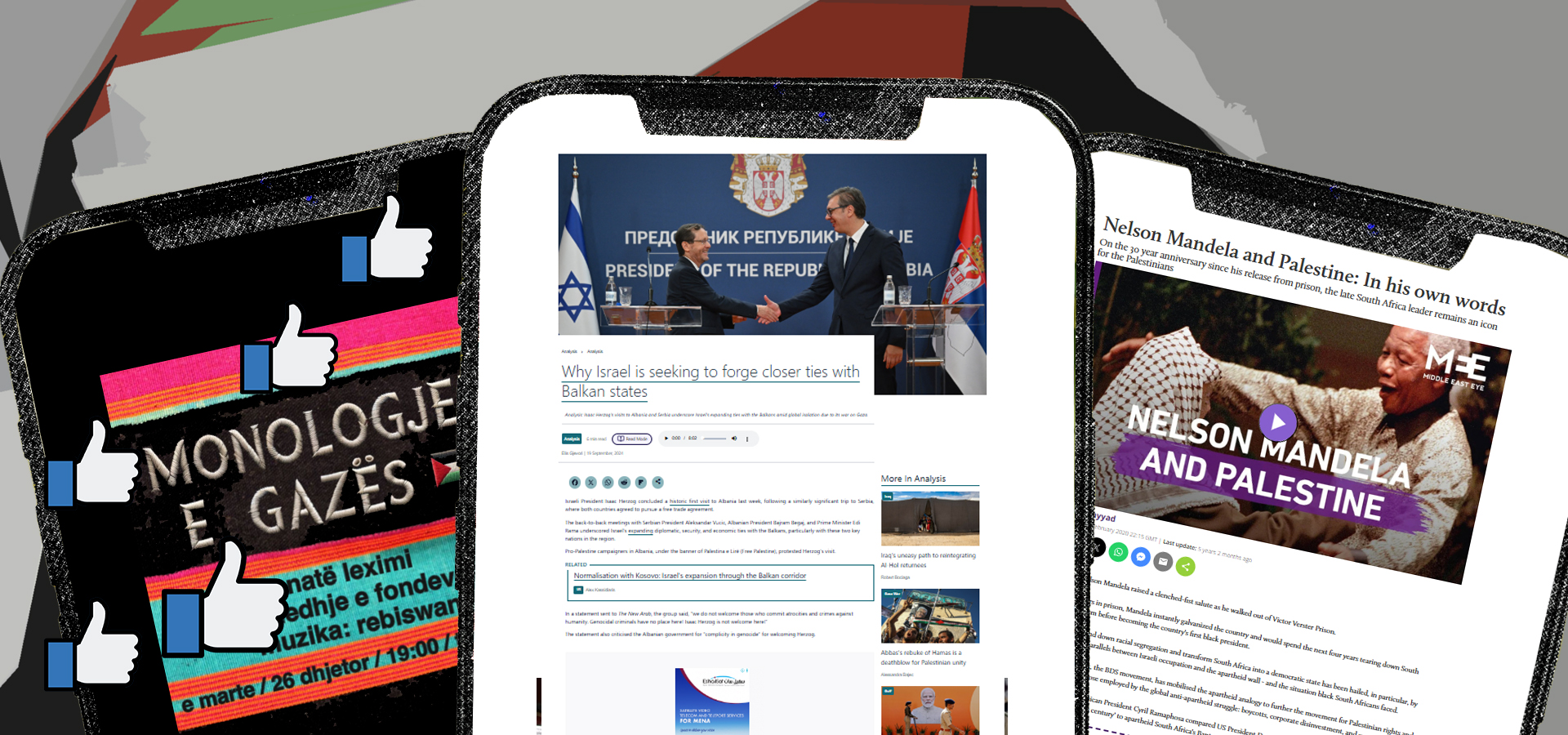
Palestine and the politics of memory
Harnessing Palestinian solidarity for identity politics and public memory.
In this context, a complex network of overlapping arguments for Palestinian solidarity emerges, at times rooted in contradictory understandings of factors like history, ethnic identity and religion.
Albanian-language social media accounts draw on the history of Kosovo Albanians and Albanians more broadly to argue for a natural affinity with the Palestinian cause.

Some Instagram posts by activist accounts emphasize historical connections in building the case for solidarity with Palestine. Photo: modified screenshot of Instagram post by Liri Palestines.
Palestine becomes a prism through which other debates are refracted.

Many posts ground solidarity with Palestine with historical images and commentary. Photo: Modified screenshot of an Instagram post by Liri Palestines.

David Chmielewski
David Chmielewski is an editorial intern at Kosovo 2.0. He is a recent graduate of Princeton University, where he majored in English and focused on decolonial theory and critical thought. David is in Kosovo on a Fulbright grant.
This story was originally written in Albanian.